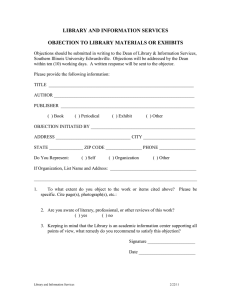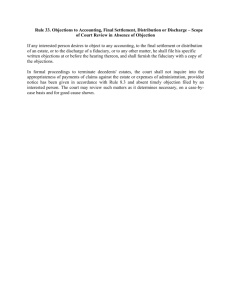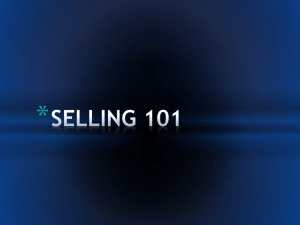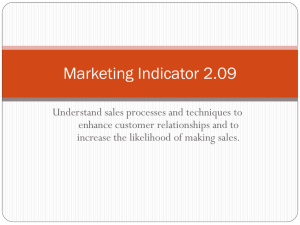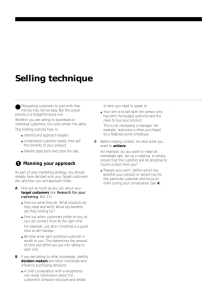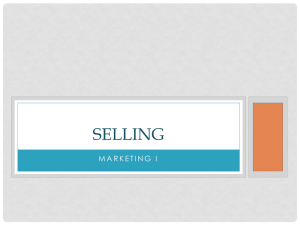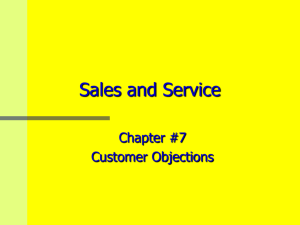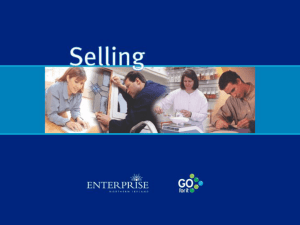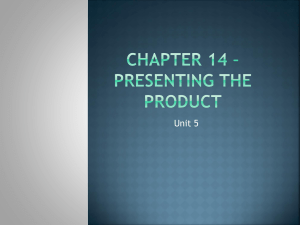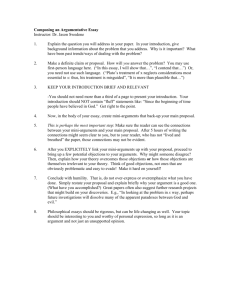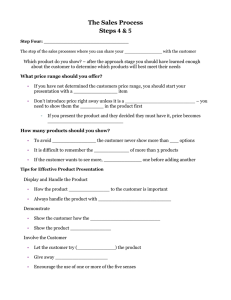CHAPTER 14 & 15 MARKETING DYNAMICS STUDY GUIDE
advertisement
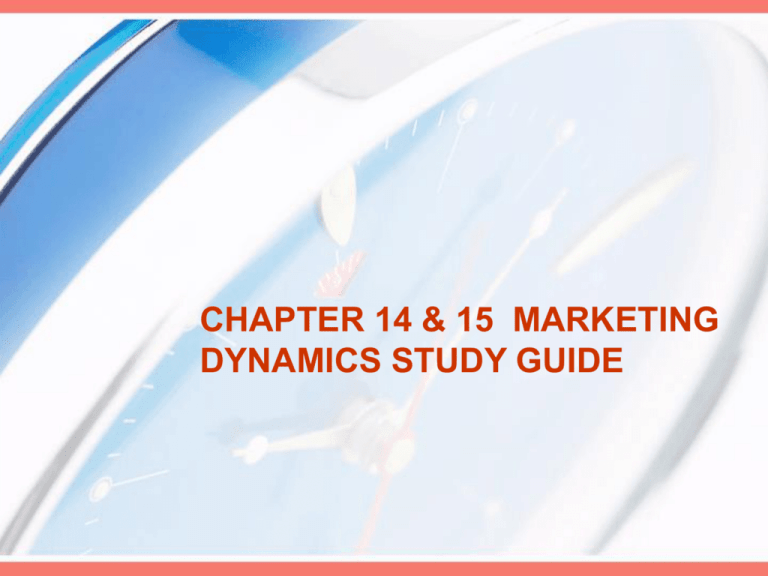
CHAPTER 14 & 15 MARKETING DYNAMICS STUDY GUIDE Layman’s terms • words the average customer can understand. • Objections • Excuses • are concerns, hesitations, doubts, or other honest reasons a customer has for not making a purchase. • -are insincere reasons for not buying or not seeing the salesperson. • Objection • Paraphrase analysis sheet • restate words in a different way. • lists common objections and possible responses to them. • Boomerang method • Superior point method • • a technique that permits the salesperson to acknowledge objections as valid yet still offset them with other features and benefits. brings the objection back to the customer as a selling point. Third party method • involves using a previous customer or another neutral person who can give a testimonial about the product. Name the five buying decisions upon which common objections are based • Need • Product • Source • price and • time List the four steps involved in the process for handling customer objections- • listen carefully • acknowledge the objection • restate the objection • answer the objection. Figuring price per yard • #7 Math problem, Ch. 14.2, pg. 252 Ch. 14-Thinking critically question # 3 identify the best method for handling these objections: • a. “This is the smallest TV I”ve ever seen. How can it have a clear picture?” • Demonstration method, • b. “I didn’t think automatic focus cameras cost so much”. • Superior point method • Ch. 14-Thinking critically question # 3 identify the best method for handling these objections: • c. “I’m not sure I need a copier that enlarges and reduces, especially at $300 more than the basic model.” • Question method • D. “Will this nylon and polyester fiberfill vest need to be dry-cleaned? • Denial method • e. “These running shoes are so lightweight. Are they definitely for avid runners?” • -Boomerang • Closing the sale • is obtaining positive agreement from the customer to buy. • Buying signals • the things customers do or say to indicate a readiness to buy. Trial close • is an initial effort to close a sale. • Which close • encourages a customer to make a decision between two items • Standing-room only close• is used when a product is in short supply or when the price will be going up in the near future. #7 Math problem • Ch. 15.2 , pg. 268 Ch.15-Thinking critically question #1 Select the most appropriate closing method and provide your rationale. • A. “I like this TV, but I don’t have the money with me to buy it today.” • Service close • B. “You’ve shown me so many pairs of gloves I like that I can’t make up my mind.” • which close • C. “My parents are fussy. What if I buy them this clock and they don’t like it?”- • service close • • d. “I had a bad experience with my last computer and am concerned about this one’s reliability.” • service close
